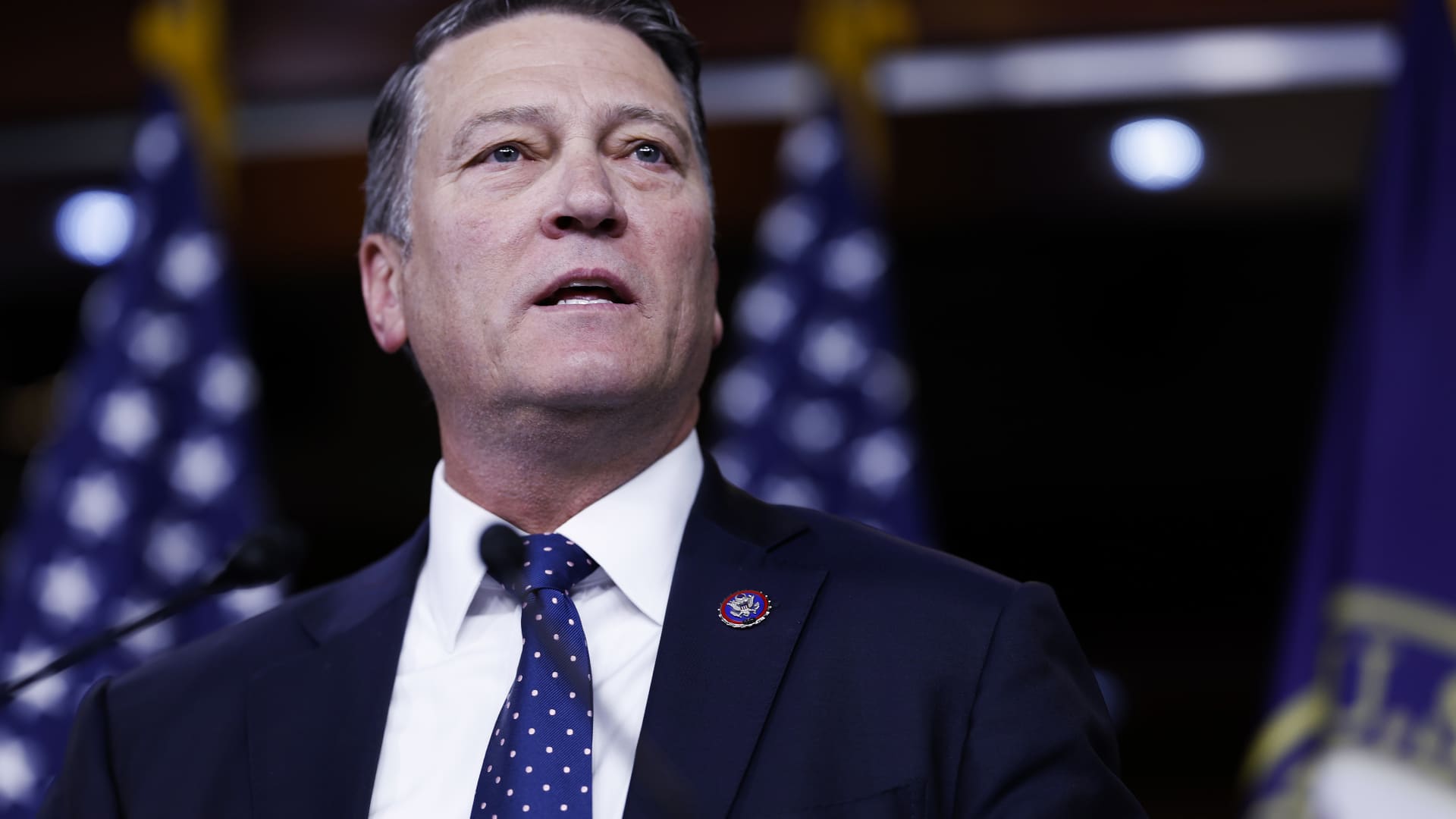Rep. Ronny Jackson (R-TX) speaks during a press conference on the National Defense Authorization Act (NDAA) with members of the House Freedom Caucus on July 14, 2023 in Washington, DC.
Anna Moneymaker | Getty Images
The House narrowly passed an annual defense policy bill on Friday after Republicans added provisions on abortion and transgender surgeries — measures that were a nonstarter for Democrats.
The legislation, which will have to be reconciled with the Senate’s version, passed in a 219-210 vote.
Four Republicans voted against the bill: Ken Buck of Colorado; Andy Biggs and Eli Crane of Arizona; and Thomas Massie of Kentucky. Four Democrats also voted in favor of the measure.
The amendments, adopted Thursday, would ban the secretary of defense from paying for or reimbursing service members for abortion-related expenses and transgender surgeries and hormone treatments.
The abortion amendment, sponsored by Rep. Ronny Jackson, R-Texas, was approved largely along party lines in a 221-213 vote. Rep. Henry Cuellar, a Texas Democrat, joined Republicans in voting to adopt the amendment, while two Republicans, John Duarte of California and Brian Fitzpatrick of Pennsylvania, opposed the measure.
The House also narrowly adopted an amendment sponsored by Rep. Matt Rosendale, R-Mont., that would bar military health insurance and the Department of Defense from providing or covering transgender surgeries and hormone treatments for transgender people.
Two amendments were adopted Friday morning before final passage. One would bar military service academies from using federal funds to discriminate or establish quotas on the basis of race or ethnicity in academy admissions. The other would prohibit the Defense Department from carrying out President Joe Biden’s climate change executive orders.
House Democratic leaders said Thursday that members of their caucus will vote against passing the bill. In a joint statement issued by House Democratic Leader Hakeem Jeffries, D-N.Y., they accused Republicans of deciding to “hijack the historically bipartisan National Defense Authorization Act to continue attacking reproductive freedom and jamming their right-wing ideology down the throats of the American people.”
The defense legislation will eventually need to be reconciled with a version of the bill under consideration in the Senate. Sen. Tommy Tuberville, R-Ala., is seeking a similar measure to block Pentagon payments or reimbursements for abortion services, which Senate Democrats are unlikely to back.
House Freedom Caucus Chairman Scott Perry, R-Pa., said Friday that his members won’t give into a bipartisan compromise.
“We are not going to back down. We’re not going to give up on the cause that is righteous and we’re going to keep fighting for it,” Perry said at a press conference with members of the conservative caucus. “The military is not the place for a social experiment. The military needs to be focused on readiness and lethality, and all these other things are distractors from that and harm our national security.”
The amendments in the House, championed by some of the chamber’s most conservative Republicans, were approved for floor consideration by the House Rules Committee earlier this week in what was seen as a major victory for the right flank of the House GOP.
House Democratic Caucus Chairman Pete Aguilar, D-Calif., told reporters on Thursday that he would vote against the NDAA, adding, “I don’t think I’ve not voted for an NDAA.”
Rep. Pat Ryan, D-N.Y., who serves on the House Armed Services Committee, said the panel worked to pass a bipartisan bill “and then the far right hijacked this, hijacked our national security. And this makes our country less secure, less safe, and it’s an insult to all of our women in uniform. So I’m a no, and I think almost all my Democratic colleagues will be a no.”

